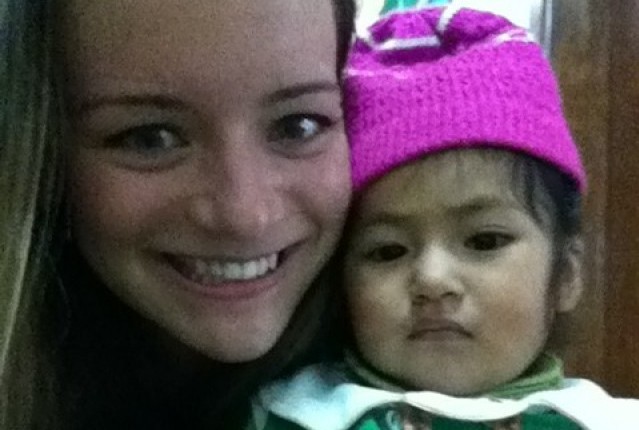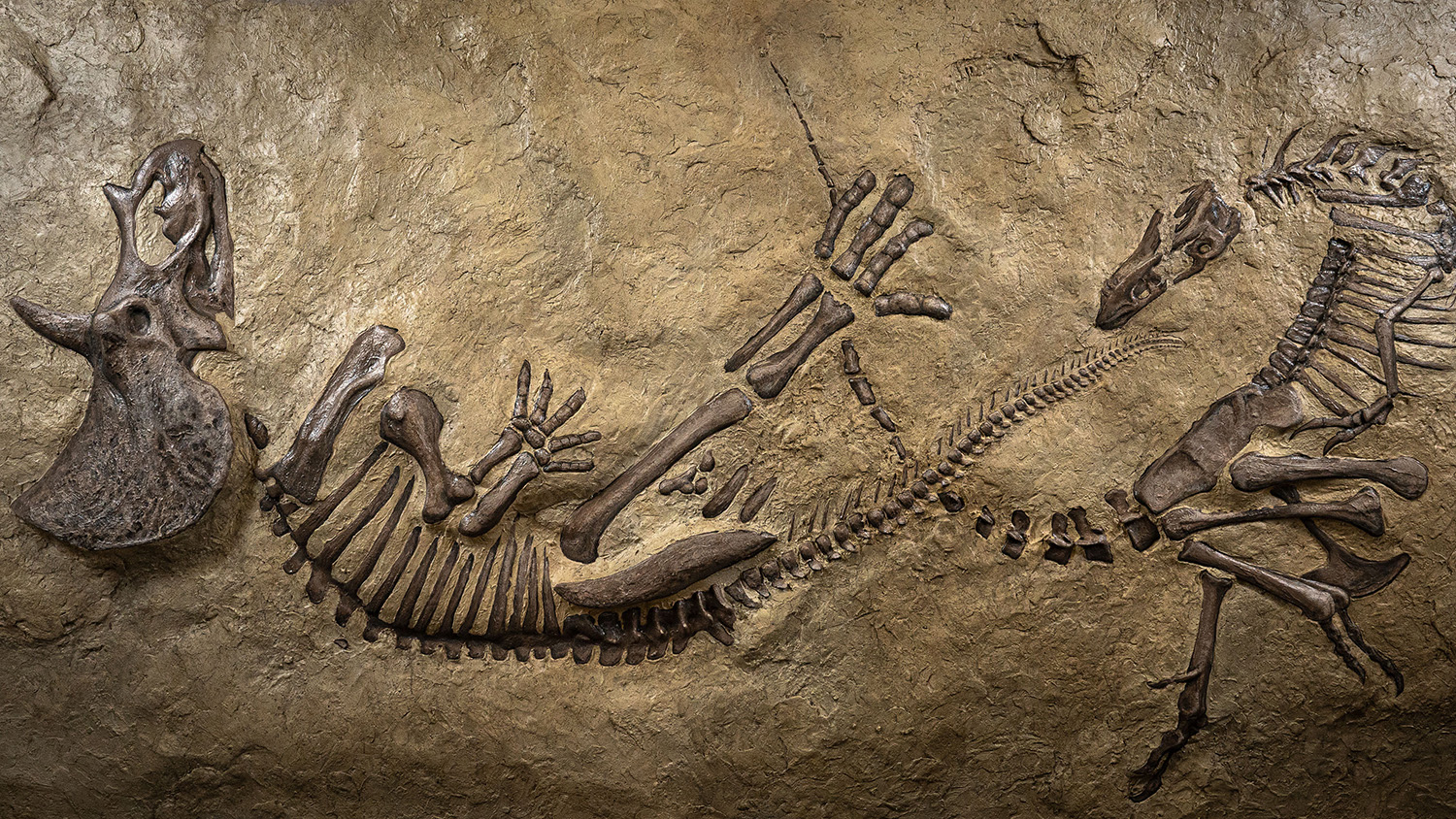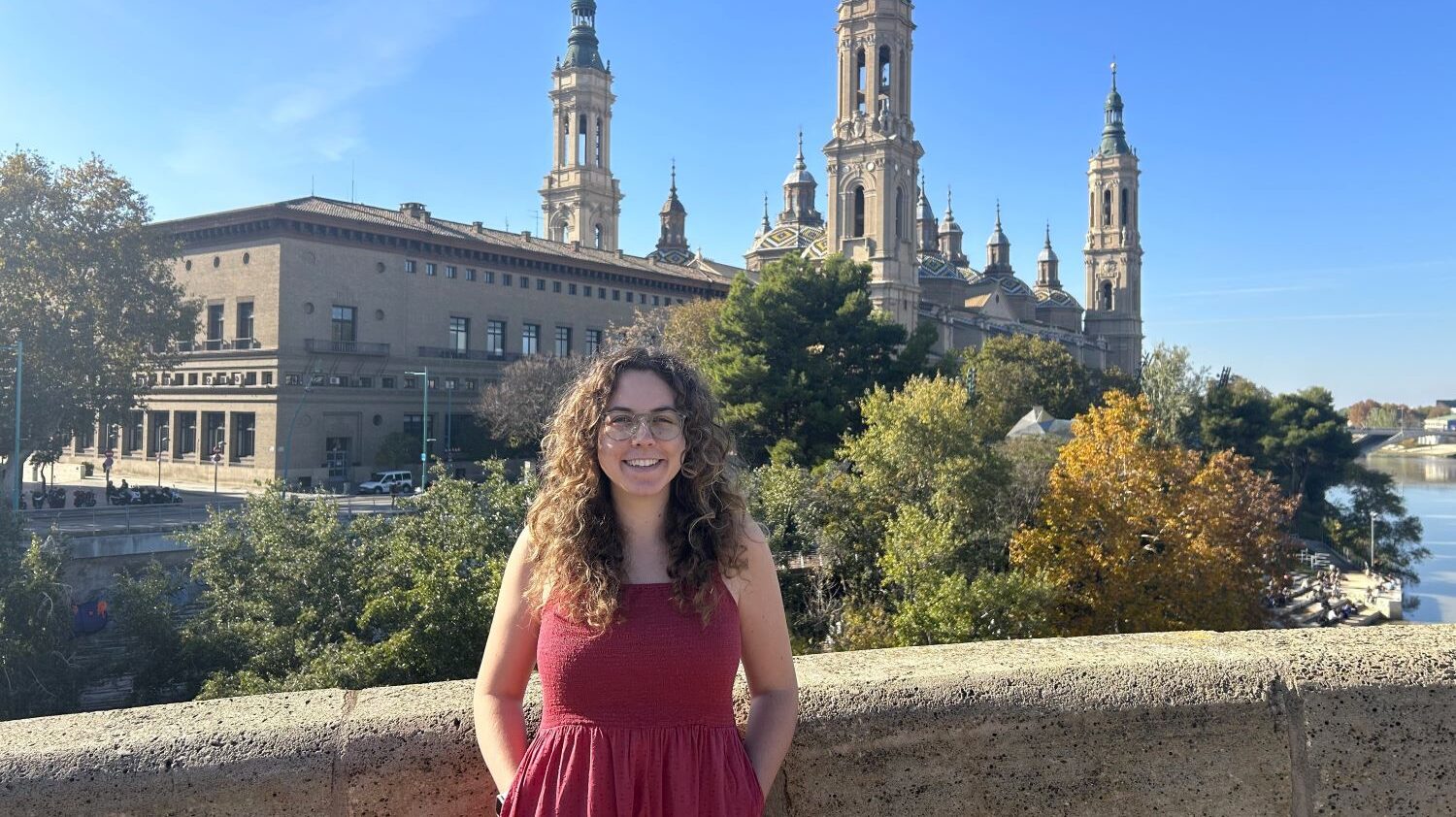Recent Grad Advocates for Justice Abroad

Even before she transferred to NC State as a sophomore, Ashley Honeycutt’s plan was to major in Political Science and go on to law school. But once she enrolled at NC State, Honeycutt’s experiences inspired some changes in course.

In addition to political science, Honeycutt declared minors in Spanish and in Nonprofit Management. She received the Susan Carter Scholarship. And as a member of Dr. Bill Boettcher’s Global Research team, she traveled to D.C. to discuss international energy policies. While she was there, she met Susan Carter, her scholarship benefactress. Carter (Political Science, ’81) is senior director of federal relations for ExxonMobil.
As Honeycutt neared graduation, Carter helped her explore and apply for a multitude of fellowship and internship opportunities. Two months into her final semester, Honeycutt landed her ideal internship as a legal administration intern with the International Justice Mission in La Paz, Boliva.
Although she is now based more than 3,000 miles from the Belltower, Honeycutt continues to draw on the knowledge and experiences she gained at NC State as she advocates for justice for the impoverished. She still hopes to attend law school, but is ecstatic about her opportunity to work with IJM and live abroad first.
Honeycutt is capturing her experiences in La Paz on a personal blog.
We caught up with Ashley Honeycutt for a brief Q&A:
Q. What shaped your decision to major in Political Science?
A. When I was a junior in high school, I went to Tar Heel Girls State and it completely changed my life. It was where I discovered that I was passionate about politics. It is a great program, and I still go back and work as a counselor when I am in the US. I’ve met a lot of great people (and a couple of presidents!) through Girls State and Girls Nation. It was what shaped my choice of major.
Q. How did the Susan Carter Scholarship impact your experiences as an undergrad?
A. I transferred to NC State as a sophomore, so I didn’t apply for any of the usual scholarships that NC State students apply for as freshmen. When I went up to Washington, D.C. with Dr. Boettcher and my research group, our team had a meeting with Carter, and because I was the recipient of her scholarship, she took a special interest in me. She helped me explore internship and fellowship options to apply for after my graduation. I also think that she is a wonderful person and just a great contact to have!
Q. Why is the International Justice Mission your ideal internship?
A. I heard about IJM when I was in high school on a retreat with my church and I thought that their mission was just so inspiring. They use the law to seek justice for the poor, and that mission really spoke to me. When I heard about them again at a conference I attended last year, I felt like I should apply to their internship program when I graduated. I wasn’t ready to settle down and start law school right after graduation. I needed to live on my own, and I really wanted to live abroad for a while … I needed a few more experiences before making the decision that I definitely wanted to become an attorney. So I started looking into international fellowships and internships, with the help of Susan Carter. The application process for IJM is pretty intense and they choose their interns early, so I found out that I got the position in September and didn’t even need to apply anywhere else!
Q. What other NC State experiences helped prepare you for the work you’re doing?
A. NC State’s Nonprofit Minor helped me get where I am. The nonprofit sector is growing very quickly in the United States and it was great that I was able to take advantage of the Nonprofit Studies classes that NC State offers. I think that IJM was very impressed that I had studied the sector that they are a part of, which helped me compete with hundreds of applicants for the position that I now have.

Q. What does the typical day look like for you in La Paz?
A. Well, I wake up really early to go to work. I get to the office at about 8:30 a.m. Then, my coworkers and I use the first 30 minutes of our work day to pray for our work and our clients. I begin working at 9:00 a.m., where I do all kinds of tasks to help our attorneys. I make new files for them, enter case information in our database, or make reports about what is going on in our cases for our Field Office Director, for example. Then, at noon, all of my coworkers and I come together in the conference room to share prayer requests and praises and worship and pray together. It is during this time that I really see how God is working in our cases.
In the afternoon, I help our lead attorney by organizing all of the casework for the biggest case that we have right now, a case involving the rape and murder of a 10-year-old girl. The case is 13 years old, so it has literally thousands of pages of documents associated with it.
Sometimes in the afternoons, I go to a hearing with one of the attorneys. I have gone to see crime scene inspections, declarations of witnesses, oral arguments, and several other types of hearings. It is hard work. Meeting the clients and reading their stories is heartbreaking since our office deals mainly with child sexual assault. When I see the justice system failing the children that come into our office, it is very hard to deal with. Because of certain laws in Bolivia and the way that the justice system is set up, it would be impossible for these cases to make it through the court system without the help of International Justice Mission, so I am really encouraged by that. Every time we get a case through to the next stage of its trial, it really is astonishing. And when we get convictions and sentences for the aggressors, it is nothing short of a miracle. And I have seen miracles in my two months in La Paz. It’s been incredible.
By Alyssa Putt, CHASS Communication Intern


